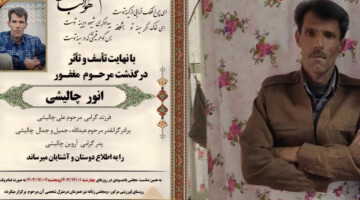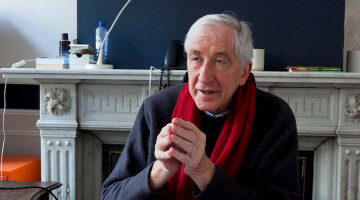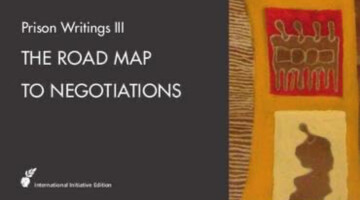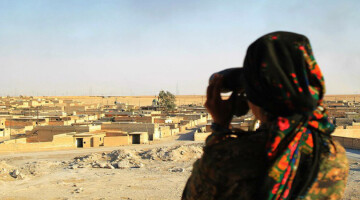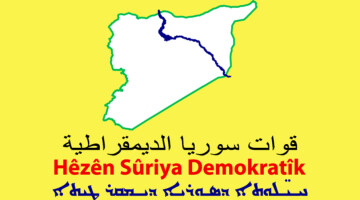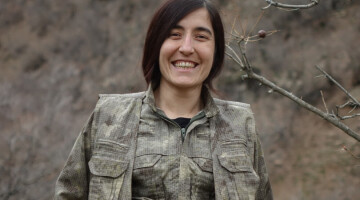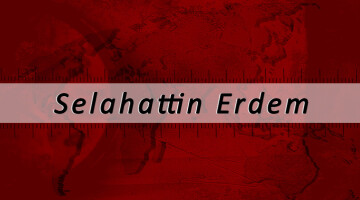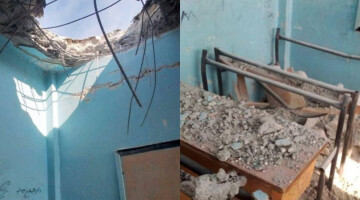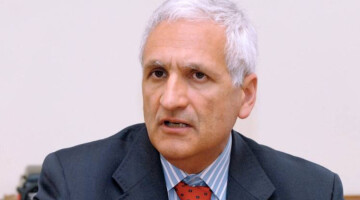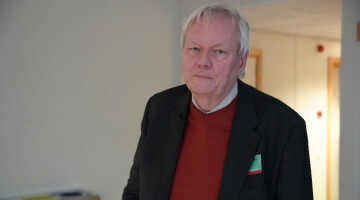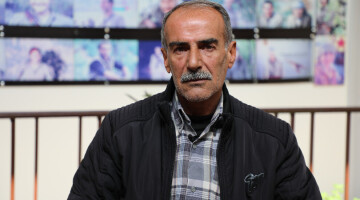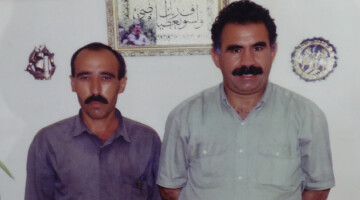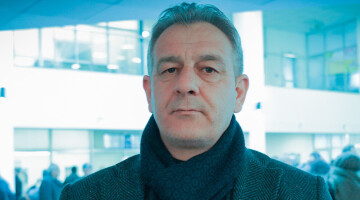Lawyer George Henry Beauthier was able to observe Turkey’s drone attacks on the ground. He told ANF that the United Nations is turning a blind eye to Turkish drone strikes on another country’s territory.
Lawyer Beauthier criticized the European Court of Human Rights’ (ECHR) ruling that domestic legal remedies in Iraq must be exhausted, and said: "This process takes years, whereas we are talking about an urgent situation."
The Turkish state continues its attacks on Northern and Eastern Syria as well as South Kurdistan (Başûrê Kurdistan). Over the past six months, six Kurdish journalists have been assassinated by Turkish armed drones. Additionally, Turkey-backed militants continue their attacks on Tishrin in Northern and Eastern Syria. Turkish state attacks on civilians traveling to protect the dam in the region have resulted in dozens of deaths.
"What we witnessed was worse than we imagined"
The lawyer visited Shengal and Maxmur to investigate Turkish drone attacks in South Kurdistan, and said that what he witnessed was "unbelievable." He stressed that civilians were being targeted, and added: "It was hard to believe that civilians were being executed extrajudicially. However, what we saw on the ground was much worse than we had anticipated. Even journalists familiar with Shengal were unaware of the realities people faced inside their homes."
"A child was killed in the Shengal library"
Lawyer Beauthier said that the Yazidis in the region were trying to establish a normal life. He added that he was visiting a cultural center in Shengal, which was attacked shortly after his visit. He also recounted that a child was killed when Turkey bombed the Shengal Library.
When he returned to Brussels, lawyer Beauthier held a press conference to report what he saw, but admitted: "No one asked us to do anything. Journalists who traveled to the region were either forcibly deported or killed. I had heard that a Belgian journalist was killed. In northern Iraq, in Maxmur and Shengal, 5 or 6 journalists investigating events were murdered, yet no international organization requested a report documenting these incidents."
"Killer drones must be discussed globally"
Lawyer Beauthier highlighted that drones originally used for reconnaissance have now become lethal weapons. He asserted that in the 21st century, it is unacceptable for a state to assassinate civilians hundreds of kilometers away from its borders. While he clarified that he is not against drones themselves, he strongly opposed their use for killing rather than saving lives, emphasizing the need for global discussion on the issue.
"You are killed in your own kitchen"
Lawyer Beauthier warned that what is happening in Shengal could become a model for aggressive states in the future. "A drone arrives, and you are killed while in your kitchen. There is no longer a need for prisons, interrogating judges, or courts. You are simply identified as a target and killed."
"This is an emergency"
Lawyer Beauthir said: "We wanted to continue our investigation, but those who did were killed. Now, I sit here with a guilty conscience, wondering what we can do. How can we protect these people?"
Referring again to the European Court of Human Rights’ ruling that Iraq’s internal legal channels must be exhausted before action can be taken, Beauthier criticized this bureaucratic delay: "This process takes years, whereas we are talking about an urgent situation."
"The UN turns a blind eye to these attacks"
Addressing Turkey's claims of "terrorism," Beauthier pointed out that the Yazidis have never carried out a terrorist attack; on the contrary, they fought against ISIS. He stated that Turkey's "terrorism" narrative is baseless.
Beauthier accused Turkey of pursuing a systematic extermination policy and criticized the United Nations for allowing Turkey to carry out drone attacks on foreign soil.
When reminded that six journalists have been assassinated in Northern and Eastern Syria in the past six months, Beauthier stated that journalists are being killed so that the reality cannot be exposed.
Beauthier said he would like to go back to South Kurdistan and added: "We cannot just go there and say, ‘We find this situation scandalous.’ There must be organizations that commission us. Our primary goal should be for these organizations to send us back so we can expose these massacres to the world."


